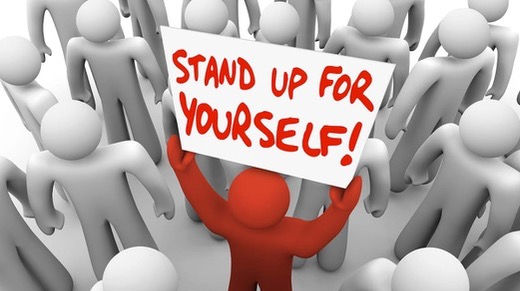
18 Jun Having your own back
Having your own back as a survivor is not without its challenges.
WE are conditioned from the time our abuse began, to put our needs last and not value what our instinct tells us, so no surprise then, that we struggle with it. Makes sense, but how can we tell when we’re doing it?
We aren’t responding when put in a position we feel uncomfortable with, we don’t say what we mean, rather, going with the status quo, and sometimes even going places we don’t want to be at just to be accepted, or even liked, even by people we don’t like.
These are some examples of NOT having our own back.
Because we have become conditioned to it, it’s comfortable, but the cost is phenomenal in both our peace of mind and self-worth. We start to lose confidence, and then one day without even realising it, we start to feel resentful, unheard, and angry.
Believe it or not, that is great news. It’s our minds showing us ‘It’s time’.
Time to move to a different level of healing, so our pathway towards accepting and loving our true self can evolve.
How do we change this when we have become so used to the status quo?
When all we have known is to bury and ignore what our inner being has been screaming at us, since forever?
Begin by acknowledging what your instinct is trying to tell you, when you don’t speak the truth with others about what you think and feel.
- Notice how that creates a disconnect within. On the one hand you are used to denying how you feel out of habit. On the other, it makes you feel worse.
- You will need support to create a sustainable change, so challenge yourself to tell a trusted friend or therapist about the issue.
- Understand that it all began from a place where:
- It was NOT safe for you to speak out and have your own back, or
- You did speak out and weren’t believed, or
- You were punished or chastised rather than nurtured and loved after you disclosed.
Or other reasons not mentioned here.
The notable difference is that back then you were young and powerless, now you are an adult, able to make adult choices including being true to you.
Some techniques that work include,
- writing out what you want to say before having that ‘difficult’ or ‘challenging’ conversation, when you are being told, by others, the way things are. If you plan and prepare this, you are likely to feel more confident doing it over the phone.
- Sending a message is also an easy way, on the condition it has the ‘less is best’ philosophy. The minute you start to justify, rationalise, or explain your stance, is the minute you begin to lose your power.
Don’t worry if it all feels too much, it is a whole new way of being, and one step at a time at your speed is the best way to achieve the goal.
The best option is obviously face to face, but that can be daunting if you are used to fitting in and saying yes to other, more dominant people in your life.
Take it slowly, when you are ready to state your opinion, or say no to someone who has exerted power over you – you will.
The beauty of this, is that once you have done it the first time, you will feel empowered to do it again, and then again, until one day that has become your new habit.
Before you know it, the words will have been said, the impact will have been felt, and you, my beautiful survivor will know the power of having your own back.


No Comments